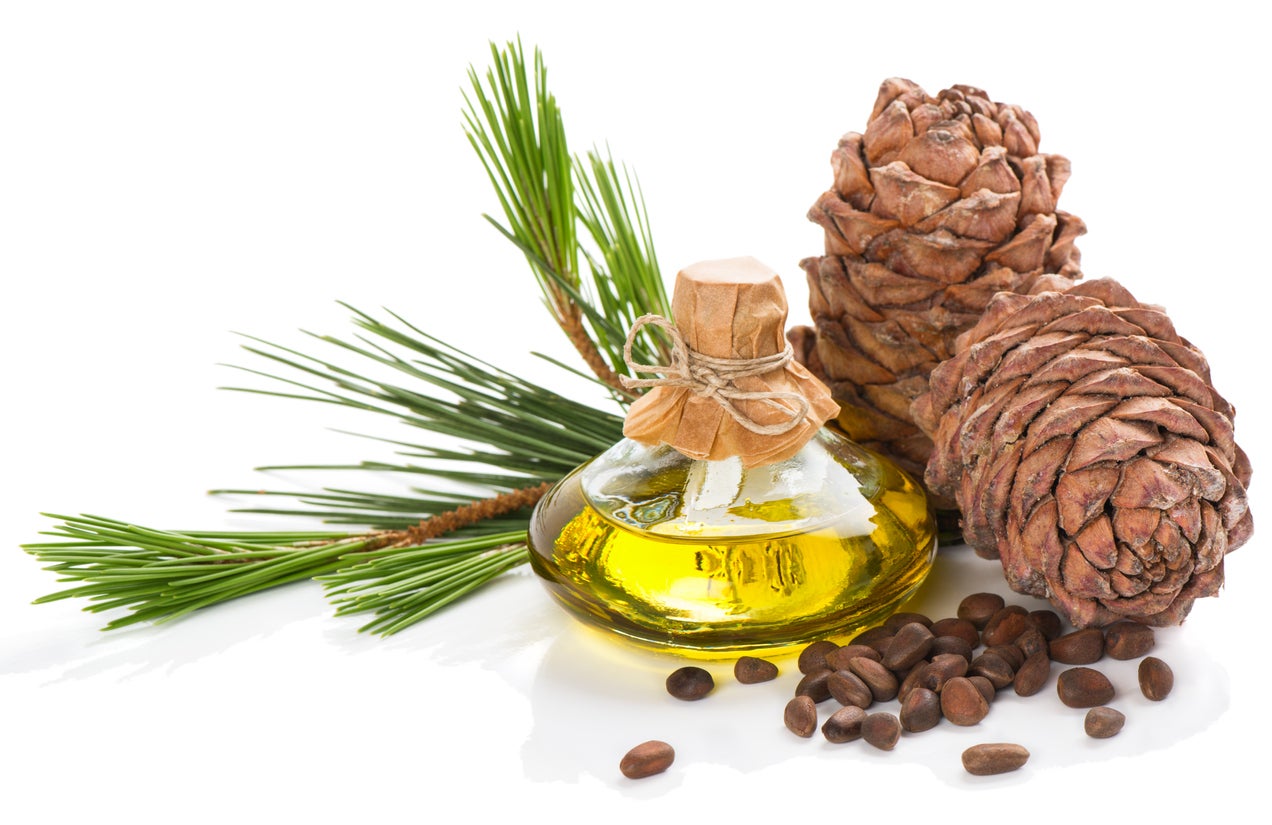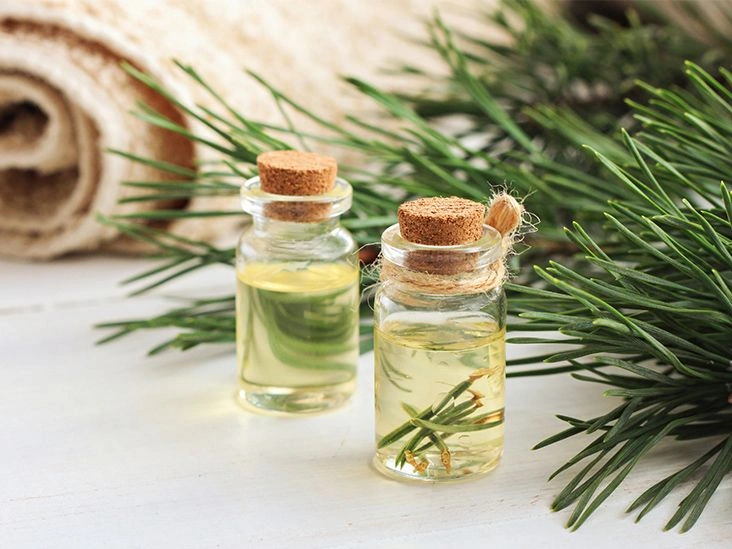Essential oils have grown in popularity as potential natural alternatives to pharmaceuticals. These plant-based extracts are still under investigation for their therapeutic properties, and pine oil is among those being examined.
Extracted from pine trees, pine essential oil is credited with several proposed health advantages and is recognizable for its pronounced woody fragrance.
Although pine tree oil may provide certain benefits, it can also cause adverse effects like any essential oil. Review the advantages and drawbacks to help determine whether pine tree essential oil is something you want to try.
What is pine essential oil?
Pine essential oil is obtained from pine needles, which emit a distinctive aroma. A single whiff of pine oil may instantly evoke memories of a holiday tree.
Like other essential oils, pine has a long history of use in traditional healing practices.
Pine scents and oil derivatives are also common in everyday products, including floor and furniture cleaners, disinfectants, and air fresheners.
Keep in mind that oil extracts are not identical to essential oils; they don’t possess the same concentration or medicinal potency.
Essential oils are comprised of various chemical constituents that give them their strength. For that reason, essential oils should not be ingested.

Pine oil uses and benefits
Pine essential oil is prized for its refreshing yet clarifying aroma. Because of this, it can be used as a room scent in diffusers and incorporated into cleaning solutions.
The web contains many personal stories and articles claiming pine essential oil has health benefits beyond aroma. However, the majority of these assertions are not well supported by clinical studies.
Air fresheners and aromatherapy
Pine oil extracts frequently appear in air fresheners for homes, workplaces, and vehicles. Pure essential oils may be used in aromatherapy to foster an uplifting and revitalizing environment — more than just a pleasant smell.
Breathing in oils such as pine may also produce decongesting effects during illnesses like the common cold.
Skin antimicrobial
Some advocates suggest pine essential oil can be applied to the skin as an antimicrobial, much like tea tree oil. In theory, it might be used for minor skin infections and burns.
However, research shows pine oil has limited antimicrobial activity. Consult a healthcare provider before using pine oil for this purpose.
Reduced inflammation
Pine essential oil is also promoted for potential anti-inflammatory effects.
In principle, these effects could:
- Relieve symptoms of inflammatory skin conditions, like acne, eczema, and rosacea.
- Reduce pain related to conditions such as arthritis and muscle soreness.
Nevertheless, more scientific study is necessary.
Other essential oils have demonstrated anti-inflammatory activity, including:
- turmeric
- ginger
- frankincense
- peppermint
Side effects of pine oil
When used in aromatherapy, essential oils can affect those who inhale them.
Some essential oils can be toxic to pets or pose risks for pregnant individuals and children. Skin reactions to these oils, including pine essential oil, are also possible.
Potential side effects include:
- redness
- hives
- itchiness
- dryness
- swelling
- peeling skin
If you have a pine allergy, avoid pine oil. While not widespread, some people react to pine pollen. If you experience allergy-like signs, such as sneezing or skin rashes, you may be sensitive to pine essential oil.
How to use pine essential oil
Pine essential oil can be utilized in several ways, including inhalation and topical application. Discuss these methods with your doctor before trying them.
Use a diffuser
Diffusing is among the most popular techniques for using essential oils.
Create a quick, safe room fragrance by adding a few drops of pine essential oil to a diffuser filled with water. When activated, the device emits a cool mist.
You can buy a diffuser online.
Inhale it
If you don’t own a diffuser, you can still enjoy the aromatic effects of pine essential oil by inhalation.
Place a couple of drops on a tissue and hold it near your face while taking deep breaths through your nose.
Another option is to hold the bottle beneath your nose and inhale directly.
Apply it topically
Pine essential oil can be applied topically, either directly or through a massage.
Always dilute pine essential oil with a carrier oil before putting it on your skin. Mix a tablespoon of almond, jojoba, or coconut oil with a few drops of pine essential oil.
Use this blend to perform a patch test 24 hours in advance to ensure you don’t have a sensitivity to pine.
Add some to your bath
Essential oils are also used in baths. Add several drops of the oil to warm running water. Be cautious of slippery surfaces when entering and exiting the tub.
Precautions
Essential oils like pine are attractive because they’re “natural.” However, these plant extracts are potent and can mimic the effects of conventional medicines.
That’s why consulting a healthcare professional is advisable before using them, especially if you’re pregnant or have underlying health issues.
To lower the chance of adverse reactions, take these safety steps before using pine essential oil:
- Keep essential oils away from your eyes.
- Always mix essential oils with a carrier oil before skin application.
- Never ingest essential oils.
Where to get pine essential oil
Given the demand for essential oils, you can find pine oil at natural health stores, pharmacies, and massage clinics. A range of pine oil products is also available online.
The takeaway
Though pine is well-known for its aroma, numerous medicinal claims about its essential oil circulate.
Diffusing pine essential oil is unlikely to be harmful, but consult your physician before using it for health purposes.
Stop using the oil immediately if you notice signs of an allergic reaction.

























Leave a Reply
You must be logged in to post a comment.